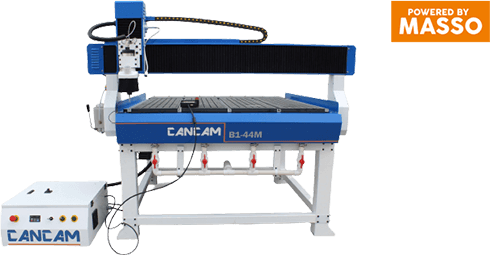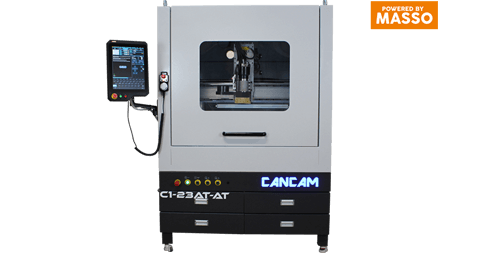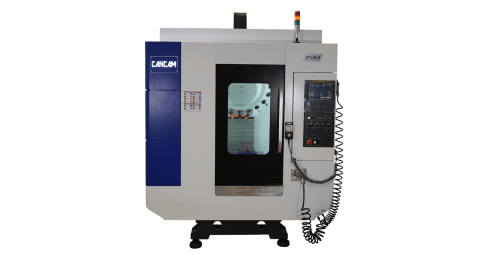Everything You Should Know about Becoming a CNC Machine Operator
 If you have an interest in manufacturing or machining, becoming a CNC machinist or CNC operator could be an enticing career opportunity. Whether you are looking for a career change or are preparing to enter the workforce, it is always a smart idea to have a strong understanding of your intended role before applying for jobs. Learning about how to become a CNC machine operator is your first step toward starting a rewarding new career.
If you have an interest in manufacturing or machining, becoming a CNC machinist or CNC operator could be an enticing career opportunity. Whether you are looking for a career change or are preparing to enter the workforce, it is always a smart idea to have a strong understanding of your intended role before applying for jobs. Learning about how to become a CNC machine operator is your first step toward starting a rewarding new career.
At CanCam, we provide our customers with access to high-value CNC machines and have first-hand experience within the CNC router industry. In this post, we outline what you might wish to know about becoming a CNC machine operator. Whether you are looking to add a CNC router to your workshop or are looking to work with CNC routers, the following information can help to point you in the right direction.
What Do CNC Machinists or Operators Do?
As CNC machines are able to complete tasks automatically with a high level of precision and accuracy, they can only do so when the machine has been used effectively. Ensuring that a CNC router is doing what it should be is the role of a CNC machine operator. Operators set up CNC machines for use and monitor closely through all stages of the production process. However, it may seem like an easy job at first glance, being a CNC machinist requires specialized skills and attention to detail in order to be effective.
Do You Need a Certification to be a CNC Machine Operator?
Though a certification or college diploma is not necessarily required to work with CNC routers, having formal qualifications can be helpful when looking for work as a CNC machine operator. Working with CNC machines is a skilled trade, and training is necessary. Find more information on CNC router education by viewing available college programs at Ontariocolleges.ca.
How to Find a CNC Operator Job
If you are looking to become a CNC machine operator, your first step is to ensure that your resume is competitive. This can be done by obtaining formal education related to CNC machines or by building on your experience through on-the-job training. Many workshops offer apprenticeships to those who are new to the industry and looking to gain experience. Machinist jobs are often in demand and can pay well. As you search for work, look for opportunities that can help you to expand your skills to promote further advancement.
Working with CNC routers can be a rewarding career that challenges your skills and allows for creativity and ongoing learning. Always keep in mind that if you are looking for a career within the machining or manufacturing industry, obtaining formal certification is a good idea, though not necessarily a must-have. As you build upon your current skills and experience, we hope that you find a rewarding career working with CNC routers.









